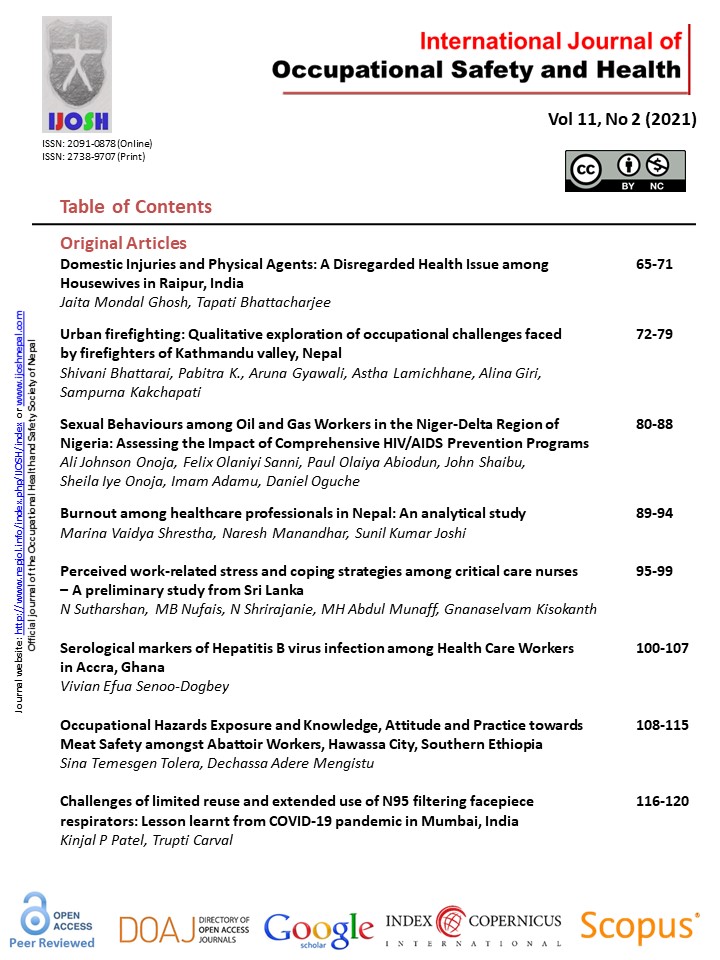Sexual Behaviours among Oil and Gas Workers in the Niger-Delta Region of Nigeria: Assessing the Impact of Comprehensive HIV/AIDS Prevention Programs
DOI:
https://doi.org/10.3126/ijosh.v11i2.36371Keywords:
HIV/AIDS, Intervention programme, Sexual behaviors, STIsAbstract
Introduction: The major means of transmitting sexual-related diseases including HIV is through unprotected sexual activities. This study aimed to assess the impact of comprehensive HIV prevention interventions on the sexual behavior of oil and gas workers in Bonny Island, a rural community of Rivers State, Nigeria.
Methods: This is a cross-sectional-quantitative study that employed a structured questionnaire among oil and gas workers aged 15 – 49 years in Bonny Island. The information collected from February to April 2012 (after a three year HIV prevention and control intervention programs) includes the socio-demographics; age, gender, education, occupation, marital status and data related to sexual behaviors. Data were analyzed using IBM-SPSS version 25.0.
Results: There were 419 respondents each in baseline and post-intervention surveys. The rate of unprotected sex among respondents at baseline was 82.1% as compared to 20.3% after the intervention, odds ratio-18.02 (95% CI-12.76-25.45; P<0.0001). Sixty-one (14.6%) exchanged sex for gifts in the baseline and 12.4% in the post-intervention. At the baseline, 5.0% used condoms in the last sexual intercourse as compared to 26.0% in the post-intervention; odds ratio - 6.66 (95% CI-4.08-10.88; P<0.0001). Factors associated with condoms use include sex, age, education, duration in the community, marital status, and living with spouses (p<0.01).
Conclusion: There was a significant positive impact of a comprehensive intervention programme on the sexual behavior of the workers in the rural community of Rivers State, Nigeria. However, regular interventions in rural communities towards the prevention of spread of STIs and HIV are needed in Nigeria.
Downloads
Downloads
Published
How to Cite
Issue
Section
License
This license enables reusers to distribute, remix, adapt, and build upon the material in any medium or format for noncommercial purposes only, and only so long as attribution is given to the creator.





